Every Denis Villeneuve Movie Ranked From Worst To Best
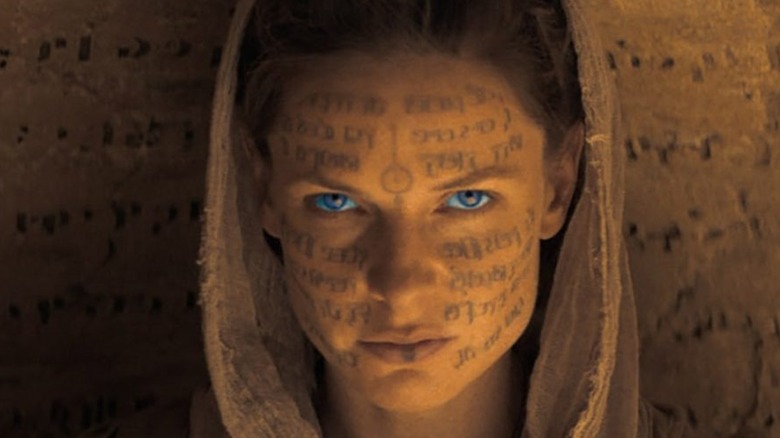
As theatrical moviegoing begins to share the cultural spotlight with other forms of entertainment, there are fewer directors whose names spark interest in fans and financiers alike. The most recent addition to this list is undoubtedly Denis Villeneuve, the French-Canadian filmmaker who rapidly ascended to Hollywood's top ranks in the 2010s.
Villeneuve started the decade with a feature that garnered an Oscar nomination for best foreign language film, picked up a personal nomination for best director along the way, and closed it out by getting a nine-figure budget to make an audaciously artistic franchise film. Even as he's dramatically scaled up the scope of his productions, Villeneuve has never lost interest in the quiet, brooding interiority of his protagonists. He's always just as interested in watching people react to big events as he is in having these characters initiate them.
His latest effort, a new adaptation of Frank Herbert's "Dune," begins another exciting chapter in Villeneuve's already storied and unique career. After a delay of over a year thanks to the pandemic, "Dune" finally premiered on the 2021 fall film festival circuit to rapturous reviews. On this occasion, we revisit his vast filmography, from his upstart Quebecois indies to his massive studio blockbusters, and sort them from worst to best.
Maelström
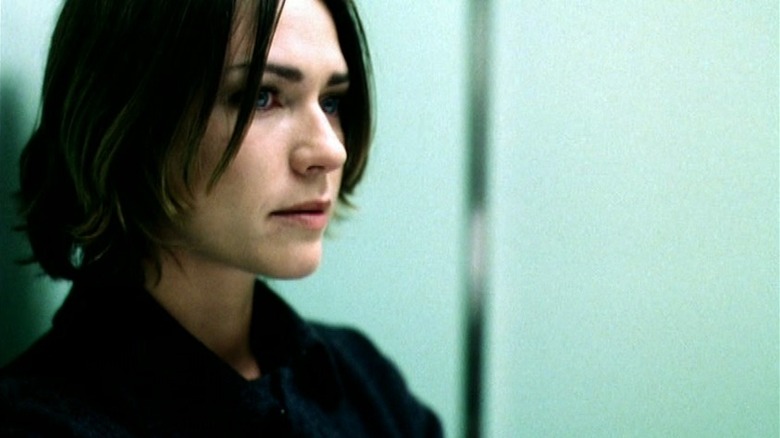
"Maelström" was the hardest Villeneuve film to track down in the United States, and for good reason. Villeneuve's sophomore feature has all the upstart energy of a new filmmaker who is bursting with ideas and lacks control over his craft. This is, thankfully, the only Villeneuve film that could reasonably be labeled "quirky." And that's a good thing.
In terms of plot and protagonist, "Maelström" is not all that different from Villeneuve's other movies. Like much of his work, the film unfolds in the blast radius of a seismic event in the life of the main character; here, that's 25-year-old Bibiane, who causes a tragic car accident in the wake of an abortion. The whole misadventure is just an unwieldy mess, and it's not made any better by the bizarrely detached narration courtesy of a bloated animatronic fish who is being gutted alive. For a director defined by his fastidiousness, "Maelström" is a bizarre blip in an otherwise consistent career.
Polytechnique
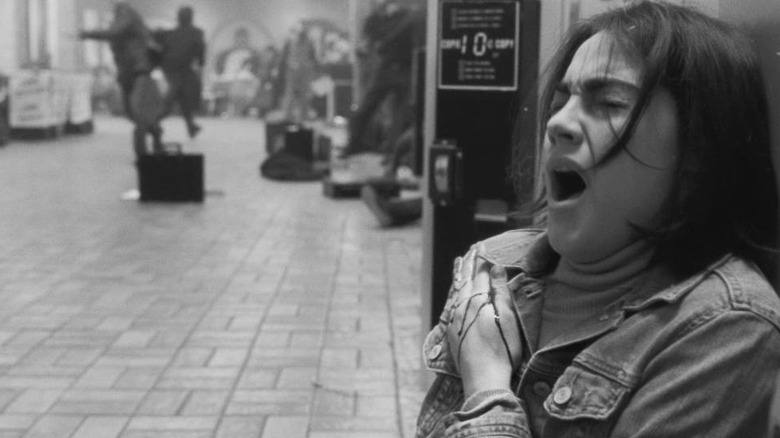
Denis Villeneuve's short, shocking school shooting story "Polytechnique" details a horrific outburst of violence in 1989 that was dubbed the "Montreal Massacre." The film debuted just 10 years after the Columbine shooting in America ushered in what feels like an unceasing wave of senseless violence targeted at educational institutions. A decade after its release, "Polytechnique" already feels like a dated relic that misunderstands how to portray this touchy subject.
The film ultimately does the right thing by centering the victims, two women caught in the crossfire of a violently repressed misogynist. It's great to experience the quotidian moments in their daily scholastic lives that grant them quiet, undeniable humanity. But "Polytechnique" gives far too much of a platform to the killer, even going so far as to let him spew his anti-feminist manifesto with unfiltered fury. With the evolution of current understanding around how these killers come to idolize mass murderers, there's simply no way this perspective would fly today. The film's haunting black-and-white photography, too, makes the film's events feel like a relic of the past, even though this ideology remains a clear and present danger.
August 32nd On Earth
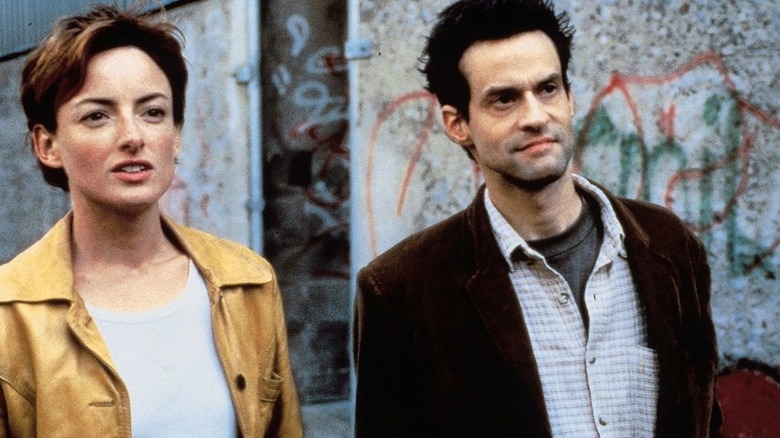
A shrink might have had some serious questions about Denis Villeneuve's early career fixations. Like Villeneuve's "Maelstrom," the focal point of his 1998 debut, "August 32nd on Earth," is also a car crash. For protagonist Simone, the brush with death leads her into a prolonged existential crisis. She comes to the ultimate conclusion that the way out is through, so she enlists a male friend to help her bring a new life into the world.
Right out of the gate, Villeneuve showcases a visual sensibility that is playful yet still precise. He patiently grants space for his characters to explore emotional beats. Through Simone's journey, Villeneuve details not just the immediate impact of an action but also the process of understanding its consequences. Though it's tempting to see "August 32nd on Earth" primarily as a curio for Villeneuve completists who want to understand the director's humble beginnings, the film is not without its modest charms.
Blade Runner 2049
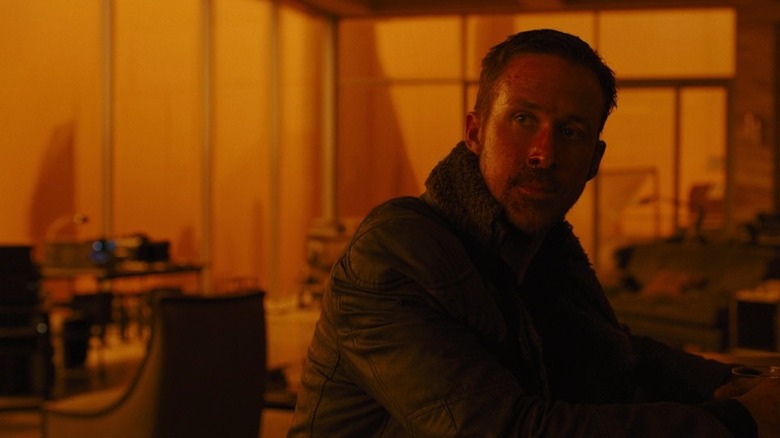
Villeneuve took a big risk making a sequel to Ridley Scott's "Blade Runner" after the original built up 35 years' worth of cult fandom. Though the film does bring back Harrison Ford's Rick Deckard, he does not reappear until well into the second half of "Blade Runner 2049." Instead, Villeneuve entrusts the film in the stoic, solemn hands of Ryan Gosling as K, a new blade runner tasked with keeping powerful secrets buried in futuristic Los Angeles.
"Blade Runner 2049" is at its best when Villeneuve has the space to explore big ideas about where technology, intimacy, and society as a whole are headed. The film's strongest moments often have little to do with moving the plot forward. Though the scale of the work, lensed by legendary cinematographer Roger Deakins, is monumental, the grandiosity often clouds out some of the intimacy of this plaintive meditation on the value of reality.
"Blade Runner 2049" feels a bit at war with itself, forced to hit mandatory fan service beats while also trying to do something entirely original. It's fascinating to see the tussle play out in real-time, and to see when the moments of Villeneuve's artistic perspective break through the mandates of studio filmmaking. In the end, though, "Blade Runner 2049" can feel a bit grueling to sit through as it languorously finds its way.
Incendies
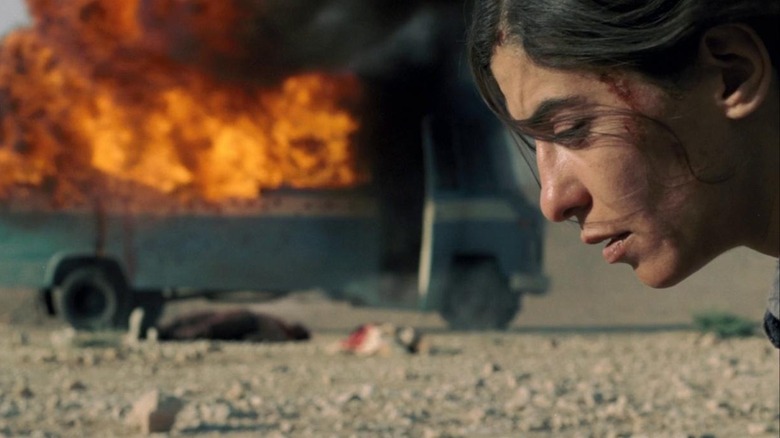
Villeneuve scored his international breakout hit with "Incendies," a nominee for best foreign language feature at the Academy Awards. In many ways, the film's success opened up the door for Villeneuve to move towards large-scale Hollywood filmmaking. But, in retrospect, it also feels like the end of an era for Villeneuve as well. This was the last film he'd script for a decade, and here, the propulsion that he normally imparts through visual mood and tone comes more from his screenplay.
That's not to say this is lazily lensed, however. "Incendies" is just more riveting to watch unfold on a plot level, as two adult siblings have their world rocked by revelations in their mother's will. Only after death does Nawal (Lubna Azabal), an Arab immigrant in Canada, show a side of herself from the life she escaped. But, as the film's flashback structure shows, while the concept of the past may be compartmentalized from the present, its effects cannot be.
"Incendies" makes for a reasonably gripping family drama with some standout scenes set in the Middle East. But among Villeneuve's filmography, this is the movie that most feels like another director could have made it. Its main value now seems to be in the opportunities it led to.
Prisoners
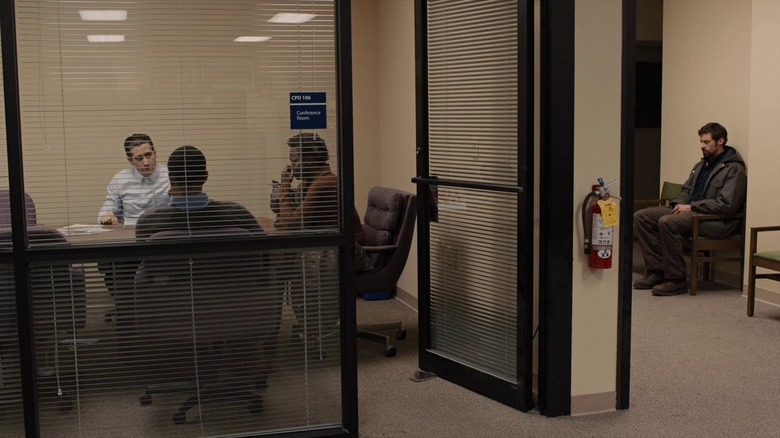
Denis Villeneuve stares unflinchingly into the darkest crevasses of humanity in "Prisoners," a tightly coiled drama charting the fallout from the disappearance of two young girls in suburban Pennsylvania. With an artful remove courtesy of Roger Deakins' haunting cinematography, the film observes how uncertainty and helplessness chip away at the people's impulses to remain civilized. Nowhere does this descent into darkness hit home harder than in Hugh Jackman's performance as Keller Dover, whose increasing desperation to save his daughter ultimately leads him to emulate the evil from which he wants to rescue her.
It's not hard to imagine a version of this story that goes completely off the rails, but Villeneuve grounds "Prisoners" in the cold reality of violence and depravity. There's not a second of the film in which his brutal, painterly touch feels absent. If anything, that commitment to an austere tone is the only major thing working against the film. Villeneuve's refusal to blink in the face of situations void of normal human empathy makes it a uniquely punishing two-and-a-half-hour watch.
Villeneuve never bludgeons his audience with the grimness of the worldview expressed in Aaron Guzikowski's intricately woven script, instead just letting it slowly seep out over the course of "Prisoners." Those in need of some redemption or validation from enduring this dire assessment of humankind's capacity for cruelty should seek entertainment elsewhere.
Enemy
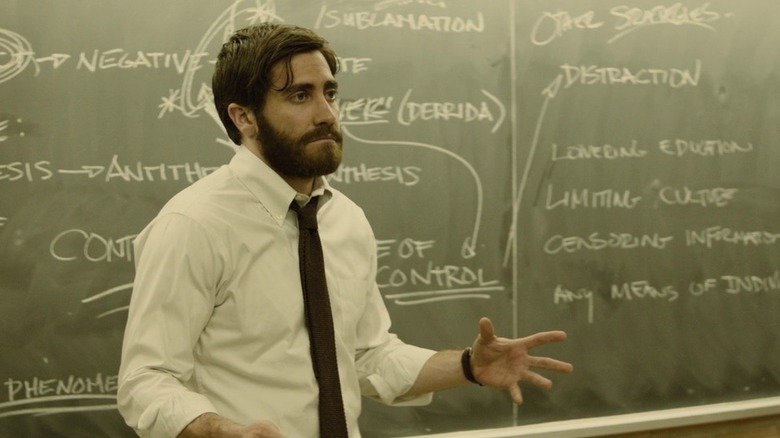
Amidst the grandiosity of his American expansion, Villeneuve still found time to make the quirky Canadian project "Enemy" with Jake Gyllenhaal. This loose adaptation of a José Saramago novel casts the actor in two roles, first as downcast college professor Adam Bell, and then as upstart actor Anthony Claire. The former stumbles upon the latter, and, surprised to learn he has a doppelgänger, gets inexorably and inexplicably drawn into his web in an attempt to impose order on the confusing discovery.
It's a strange 90 minutes during which, ostensibly, little happens. But the way that Gyllenhaal calmly charts the inner turmoil of both men as their lives turn inside-out makes this slender film feel like a vast tome. He's tuned into the exact wavelength of his director, dwelling in the mysterious and unexplainable shadows of the story. Neither feels any need to explain the metaphors or elucidate the subterranean feeling of dread coursing under the drab yellow and brown Toronto exteriors.
This is a chilling mood piece about the duality of human identity that dips its toes into horror, thriller, and psychological drama. That "Enemy" never settles into a predictable groove feels of a piece with its shape-shifting observations about the inscrutability of the self. Villeneuve masterfully controls the pervasive aura of dread permeating this odd curio, made smack-dab in the middle of some sizeable studio projects.
Dune
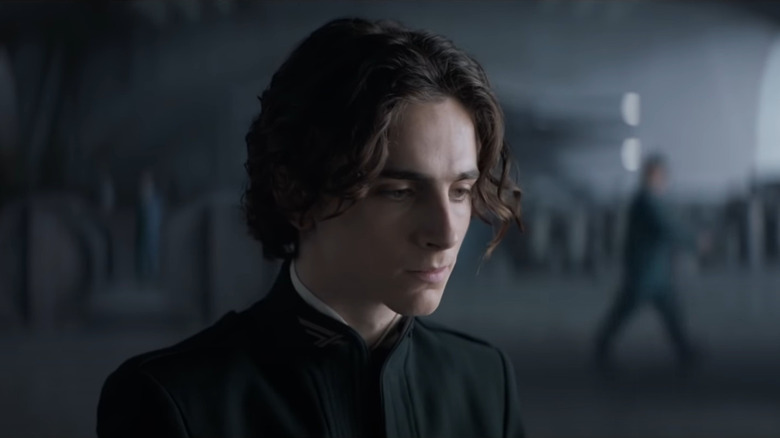
The sci-fi epic "Dune" follows the ascendance of Paul Atreides (played here by Timothée Chalamet) in assuming a position of leadership over a divided, dangerous galaxy. It's hard not to see the meta parallels to Villeneuve's own rise, a boon to the woes of the boring blockbuster. "Dune" marks a coronation of sorts for the filmmaker, a synergy of his unmatched eye for awe-inspiring visuals with his quiet ruminations about individuals coming to understand their places in the world, and dispels any doubts that Villeneuve deserves to be the latest filmmaker to become a household name.
"Dune" is a big-budget spectacle done right, and world-building as it should be. Even if it is but half of a whole -- Villeneuve still intends to finish adapting the second part of Frank Herbert's classic novel -- "Dune" feels entirely sufficient and satisfying as a free-standing enterprise. Villeneuve assembles a universe before the audience's eyes, not for his corporate overlords but for the boundless capacity of the human imagination. He restores a sense of wonder and majesty to the genre, like a conductor harmonizing a full orchestra of craftsmen and women operating at full capacity. For once, it's not just directorial hubris when a film insists that its own grandiosity be taken seriously. "Dune" earns the reverence that Villeneuve requests from his audience.
Arrival
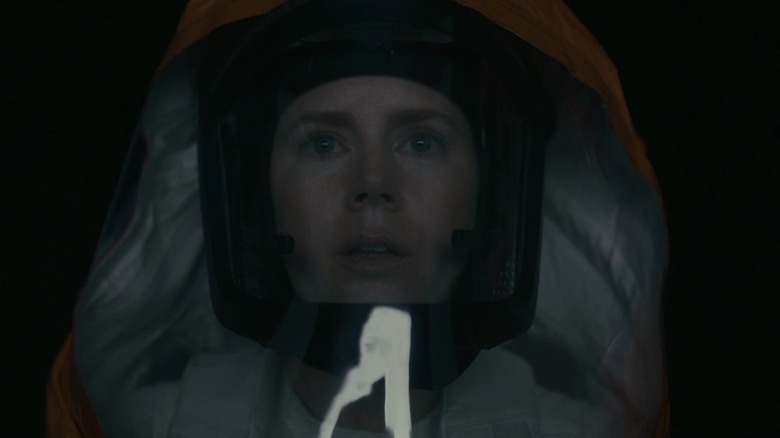
A quick glance at Denis Villeneuve's films would not necessarily create the impression that he's a humanist director. But even so, he certainly wears the hat convincingly in "Arrival," a film so full of well-earned empathy that it's almost overwhelming to take in. This alien invasion tale is but the latest to turn the genre on its head. Eric Heisserer's script reflects back not the audience's fears of the unknown, but the hopes for humanity that lie beneath. The film speaks to the shared desire for unity and communication that binds us all, yet manages not to bury that sincerity under trite platitudes.
Few things speak to Villeneuve's considerable directorial talents like the way he makes linguistics as exciting as he does in "Arrival." The film simply does not work if the audience cannot understand the complexities of the communication between beings as explained by the film's protagonist, Amy Adams' linguist Louise Banks. But find a way he does.
Villeneuve never loses the connection to the beating heart of "Arrival," which is Banks' race against the clock to open up a dialogue with the "heptapod" creatures that have mysteriously landed on earth. She's the key to unlocking the secret of the aliens as well as the film's Mobius strip of a narrative. Adams' astute performance first breaks down a dense story intellectually, then emotionally sells a message of cross-cultural understanding. It's stunning to behold a work with a thematic profundity that matches its storytelling ambitions.
Sicario
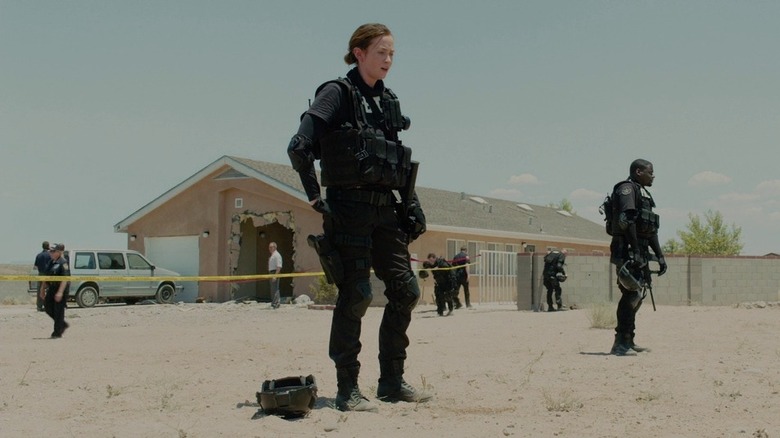
No Denis Villeneuve film manages to encapsulate the fullness of his talents quite like "Sicario." He's as comfortable working with the grand landscapes of the US-Mexico border as he is with tight close-ups of star Emily Blunt, whose audience avatar Kate Macer must relay mountains of information through only the smallest facial contortions. Villeneuve can wring suspense from swelling sound and imposing imagery, or the simple tension of a pregnant pause between two characters at odds.
"Sicario" might not be Villeneuve's flashiest project (compared to the behemoths he's now directing, the film looks like a micro-budget indie). But it's easily his most airtight production, the one in which not a moment feels misplaced or misjudged. His film adds to the conversation around the border without resorting to cheap political posturing. Villeneuve allows his film to embody the full thorniness of Taylor Sheridan's script. There are no easy answers, no black-and-white lessons, but "Sicario" is also mature enough to avoid the empty posturing of "just asking questions."
And for a director whose name is quickly becoming synonymous with big-budget thrills, in "Sicario" Villeneuve recognizes that there is no greater spectacle than the human face. The level of subtlety and precision he extracts from Emily Blunt is a true marvel. This is screen acting at its finest, finding seismic impacts in the smallness of a moment. Villeneuve busts any false binaries between the human and the humongous scales in his movies, demonstrating that each necessarily complements the other.
Read this next: Everything You Always Wanted To Know About Dune (But Were Afraid To Ask) [TIFF 2021]
The post Every Denis Villeneuve movie ranked from worst to best appeared first on /Film.
from /Film https://ift.tt/2XG79gr
No comments: